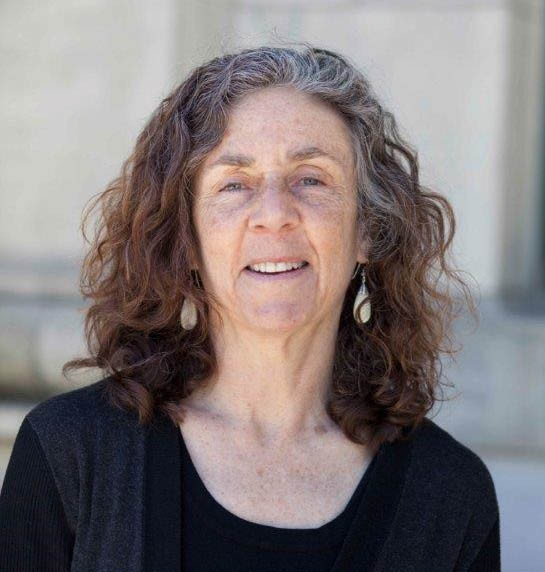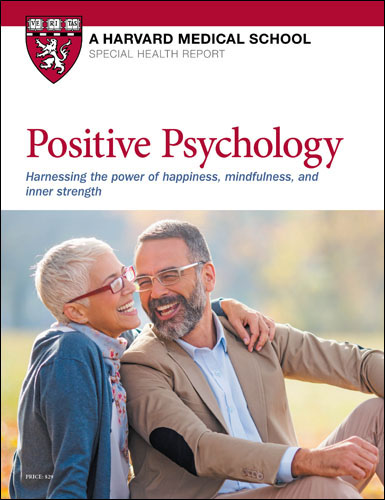Harvard Health Blog
The heart and science of kindness

Kindness (noun): the quality of being friendly, generous, and considerate; a kind act.
— English Oxford Living Dictionaries
Ombudspeople like myself have a unique view of the institutions they serve. Some of us fondly refer to it as the "view from the underbelly" of our organizations. The urgent calls we get aren't to share a recent act of kindness. Visitors who arrive at our offices often do so feeling under siege from less than kindly forces. We hear repeatedly of our visitors' desire to be treated with kindness, and of the wish that they could themselves rise above unkindness to be their best kind selves. Here, then, are some thoughts on kindness — how to give and receive it.
Kindness starts with being kind to yourself
Ever notice how much better you treat others when you've taken care of yourself? In a pressure-filled environment it's easy to work through lunch, work through dinner, and respond to emails at 11 pm. But the world often rights itself when we take a moment to breathe, assess what we need, and seek it. (Sleep? A relaxed meal, anyone?)
Be kind to yourself when you misstep, which happens to everybody. Setting upon ourselves may cause collateral damage, making others the target of the anger or frustration or disappointment that we really feel about ourselves. It can feel good to direct these upsetting emotions away from ourselves and onto others, but for how long, really?
Lead with compassion, follow with kindness
Everyone has challenges, many hidden from sight. If you knew that your coworker delivering the curt response to a question or the snarky critique of a project had recently learned of a serious illness in their family, wouldn't you cut them some slack? And better yet, might you then want to reach out with support? When we are compassionate, we are recognizing our shared human condition. Compassion can guide us to acts of kindness. Maybe we keep our mouth shut instead of calling out the misdemeanor. Or we find a private time to ask if everything is okay. Sometimes kindness is offering to get coffee, or bringing back a cookie from a lunchtime workshop just because.
We feel happier when we act in service to others
A recent study reported on how people felt after performing or observing kind acts every day for seven days. Participants were randomly assigned to carry out at least one more kind act than usual for someone close to them, an acquaintance or stranger, or themselves, or to try to actively observe kind acts. Happiness was measured before and after the seven days of kindness. The researchers found that being kind to ourselves or to anyone else — yes, even a stranger — or actively observing kindness around us boosted happiness.
Choose kindness
While we may not have control over another person, we do have control over ourselves. What does it mean to be our best selves? Isn't being kind in the mix of choices we have each and every day? We can't make anyone else be kind, but that doesn't have to stop us from aspiring to be kind, no matter what.
Give to give, not to receive
The purest form of kindness may have no audience and offer no credit. Kindness to accumulate thanks is self-serving at best. Some may even say it's an effort to control or make the recipient feel indebted. But when we are kind even if — maybe especially if — there's no such payback, the rewards may be all the sweeter. I heard a story about someone who learned that a child from a family with very little money really wanted a bicycle. This fairy godparent bought a super nice bike and asked the shopkeeper to write a highly discounted receipt for an amount the family could afford. The family reimbursed the fairy godparent for the receipt price without knowing it cost far more. Now that's kindness!
We become kinder with practice
So, practice. Aesop, the ancient Greek storyteller, once said, "No act of kindness, no matter how small, is ever wasted." If random acts of kindness don't come easily to you, try this challenge: do one small, kind thing each day for someone. Then pay attention to the impact on you. Does it become easier the more you do it? Do you start to notice and act on more opportunities to be kind in your world? Do you start to feel lighter? Kinder?
Kindness begets kindness
Just as a bully of a boss can foster a culture of bullying and fear down the hierarchical line, so can kindness from one help to foster kindness in others. We often take our cues from leaders, coworkers, labmates, and others we live with many hours a day. Why not be the kind person from whom others take their cues? The one who helps people turn to one another in small and big ways that illustrate a spirit of generosity?
Kindness is lasting
When I was a terribly insecure and shy misfit of a college freshman, I was going through the cafeteria line by myself one fall day. When I got to the checkout, the woman at the cash register said, "You have such a pretty face." Now, over 40 years later, I still remember that unexpected moment of kindness from a stranger. Who do you remember most? And how do you want to be remembered?
About the Author

Melissa Brodrick, MEd, Contributor
Disclaimer:
As a service to our readers, Harvard Health Publishing provides access to our library of archived content. Please note the date of last review or update on all articles.
No content on this site, regardless of date, should ever be used as a substitute for direct medical advice from your doctor or other qualified clinician.
















